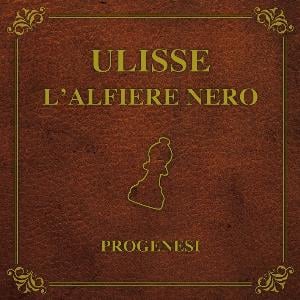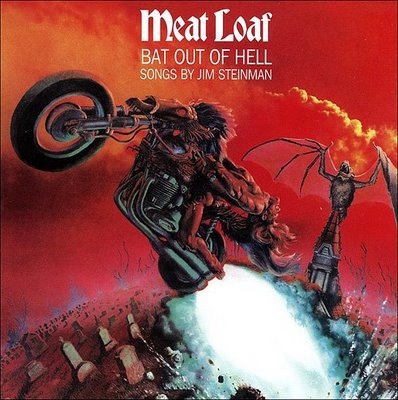
Let me tell you about television when I was growing up. No, not the programmes, but the actual sets themselves. Yeah, we called them “television sets” back then. Those of you who have grown up knowing a television has a flat screen, is very thin and can be controlled remotely do not know how good you have it. I lived through an era where even the concept of remote control was once unknown, and if you wanted to change the channel (or “station”, as we had it back then), you had to --- gasp! --- get up out of your chair! What, I hear you say? Was this the Stone Age you lived in, Trollheart?
It’s true though. It was some time into my teens maybe before we got our first telly with remote control, and it wasn’t the compact flat little thing you think of today as being your remote. Oh no. This was
big. Probably about as big as one of those 200-packs of cigarettes you get when you go away on holiday, and about as thick. It was heavy and --- wait for it ---
was tethered to the television by a cable, something like they used to use for operating camera shutters remotely. You probably don’t remember that either, do you, in these days of electronic digital timers. Indeed, even digital cameras were not always here and people had to use manual cameras and get the film “developed”. But that’s a story for another time.
I can’t find an exact picture, but it was something along these lines:

Of course, our old remotes did little more than change the channel and control the volume, possibly the brightness too. After all, our tellys were serious beasts. You wouldn’t lift one on your own. They were fat, wide things with no real handgrips and the only way you could take a hold of one was to tip the screen towards you and grab the back of it and then stagger along with it hoping you didn’t trip over anything! The screen was curved. There was no flatscreen back in my youth. Everyone was used to seeing the very edges of the picture bend out very very slightly, and the screens were thick! The television was also set in a cabinet of sorts. Whereas today your telly is basically a big monitor/screen with some controls and a stand, back in the seventies and eighties they were made of wood, fashioned like a cabinet into which the screen sat, with the controls either under the screen or to one side, and often more on the back.

You’ll note that the screen appears green. Well it was. Don’t ask me why. Probably something to do with the kind of glass they used in them. And it
was glass too: if you pinged your fingernail or rapped your knuckles on the screen you would hear the hollow, slightly ringing sound glass makes. The speaker (mono only of course) was down there at the right, with the controls, such as they were, above it. Mostly these consisted of a volume knob, channel buttons and brightness control. Most channel buttons were pushed in to select the channel but could also be turned. Why? I’ll tell you in a moment.

That’s what they looked like around the back. None of your USB jacks or stereo audio inputs, and HDMI was an acronym that would not be invented for decades. As you can see, there are ventilation slots in the back, and they were necessary because these machines got HOT! If you touched the back of one while it was running, well you wouldn’t burn your hand but you would certainly feel it. You can see this one had knobs on the back too. They were for tuning.
Unlike today’s tellys, which come either pre-tuned or which, with a touch of a button can find all the channels and tune them in to pin-sharp clarity, older tellys were not generally tuned in. If you rented --- or, if you were quite well-off, bought --- one, you would usually have to look forward to more than an hour of trying to tune in the television. If your tuning selectors were on the front of the unit you were lucky, if not then you would either have to have someone else turn them at the back while you watched the screen, or stretch your arm around the back of the set while craning your neck to see if the reception was coming in. Channels didn’t just appear: you tuned and tuned till you heard a ghostly, whistly noise and then slowly the image would appear. Once you had the station, and knew which one it was, you did whatever it was you had to do to commit it to memory: some TVs worked on the basis of you popping out the selector knob (ooerr!) turning it and then once you had tuned it push it back in, and the selection was saved. Others worked different ways. To be honest, I don’t remember the fine details: it was a long time ago, and each set worked differently in this regard.
Once you had one channel tuned in you moved on to the next, selecting the next knob down after making either a mental note of the name of the station you had just tuned in or marking it with a sticker on the button so you knew where to go when you wanted to get that channel again. Inevitably, as all the channels were broadcast on the same wavelength, you would come across the channel you had already tuned as you went, and cries of delight would quickly turn to disappointment as the family realised we had already got this channel.
And on it would go, till all channels were tuned in. Then we would sit proudly back and confidently press button 1 for BBC 1, button 2 for RTE and so on, and be very happy with ourselves. Of course, if someone accidentally tuned the station out afterwards --- I’ll explain why that might happen in a moment --- then you had to go through the whole process again, at least for that station. And if someone mislabelled the buttons, or the stickers fell off, well just hope you had a good memory otherwise you were due to spend more time clicking around, trying to find the programme you wanted, usually thirty seconds before it was due to be broadcast (for the one and only time).
And then there was what we used to call “ghosting”. In these days of digital television and High Definition channels, everyone expects and gets perfect pictures every time. But not back in my day. We used to have to rely on a company now called UPC and previously Cablelink, but I can’t recall what it was originally called, to provide us with television channels other than the local one. This was generally referred to as “The piped”, as it was piped into our homes. “Piped --- often shortened to pipe --- TV” was the thing to have. Ireland had at the time only one channel, RTE, the national channel and if you wanted more you had to have a television aerial on your roof.

These were tall, unwieldly things which stood usually on a metal stand or tube and had to be on the roof in order to get any sort of reception. They rarely failed, but if a storm took yours down, or if birds messed with it, your tv could be knocked out. Those wishing for a simpler solution, and willing to receive only the national channel, could use a pair of “rabbit’s ears”, a small indoor aerial that plugged into the back of the telly and then stood on top of the set. The drawbacks of these were many. First, they were anything but stiff as time went on, and the times I remember trying to force one arm to stand up while the other collapsed and fell over, the picture for a moment sharp (or as sharp as you could get with rabbit’s ears!) on the screen before it dissolved in a sea of static to a chorus of disappointed groans. Secondly, although most TVs were flat on top they weren’t very wide --- wider than today’s almost-not-there models certainly, but the base of a pair of rabbit’s ears was quite wide itself, so often you would stick it on the back of the TV, as in the second image above. Problem with that was that the back of the TV was curved and sloped downwards, so inevitably after a while the rabbit’s ears would begin its slow journey down the TV, slip off the end and bang would go your reception! Not only that, but with a pair of rabbit’s ears you could ONLY get your channel in if the ears were positioned a certain way AND LEFT THERE. The slightest deviation of even one of the “ears” and your programme was gone. So when the unit fell off the tv naturally the arms flopped all over the place and you were looking at some time trying to get the channel back in. All the while, of course, your never-to-be-repeated programme was continuing without you!

“Just get it on the plus one channel!” I hear you youngsters yell knowledgeably and perhaps a little derisively. Would it surprise you to know that there have not always been plus-one channels, that they are in fact a relatively recent invention? So indeed are repeats of the same show either that day or later in the week. When I was growing up if you missed the show you missed the show. There was no catch-up channel, no repeat and they didn’t even do those “previously on…” segments. You really were lost, unless you could find someone who had seen the show and fill you in.
But back to ghosting. What was it? Well, before digital television became the norm, we all received analogue signals. Since they all transmitted on the same wavelength it occurred rather regularly that the signal for one would become stronger than for the other, and it would bleed in to the weaker channel. I don’t know the technical specifics; we just knew it as “bad reception”, probably a figure of speech that would be totally alien to some of you, unless you were thinking in terms of a badly-planned wedding. But it happened all the time, so much so that when you got home and wanted to watch your favourite programme you prayed silently to the television gods that not only would the reception be good, but that it would stay good for the duration of your show, as ghosting could occur at any time and at any point during transmission.
The net effect was that you were looking at, say, Captain Kirk walking along an alien desert,, while in the background a faded, grainy image of a newscaster could be seen. Or “Match of the Day” was suddenly invaded by ice skaters or cartoon figures. The sound would also be affected, so you would hear the programme you were watching (or trying to watch!) and then a buzz, a hiss of static, and
“Luton Town, nil. Shrewsbury Rovers two, Dagenham, one.” and so on. Very annoying but very common, and there was literally nothing you could do about it. Not that we didn’t try. Screaming, shouting, cursing, and when none of that worked, blaming our mother and finally trying to “tune in” a channel that was already perfectly tuned, often losing the signal in the process so that the channel that had been ghosting through suddenly came through strongly, as Mister Spock turned to Captain Kirk with a concerned look on his face and a glance at the sky, and say
“Sir I think THAT WAS A FANTASTIC GOAL! OH CITY REALLY HAVE IT ALL TO DO NOW!” Cue much cursing, banging of the top of the telly (this always worked)

and frustrated noises, threats to “put me foot through that effin’ thing!” and a general air of grumpiness descending.
We had no twenty-four hour television either. Usually around midnight or 1am the Irish national anthem would play and we would know there was no more to be seen that night. Test cards replaced the final programme like this one

and pop, classical or sometimes supermarket music would take over. Also, the channel would not be on-air during the day, so until maybe early afternoon if you tuned in this is what you would more than likely see, again accompanied by music

Finally the music would fade out and the announcer (a real one, not just a voiceover) would appear and welcome us to the channel, telling us what was on that day and then the first cartoon or whatever of the day would begin. If you were off sick from school you could not rely on the telly to keep you entertained, that’s for sure. Unless you enjoyed shopping music.
There were of course no video recorders. We didn’t get our first one till I was about fifteen, and then it was a big event. The idea that you could tape a show and then watch it later?
Pause it?
Rewind it? Man, state of the
art! What a time to be living in! And by now we had progressed on to infra-red remote controls, which were much smaller (generally; some were still bloody huge) and needed no connection to the TV in order to work. The Space Age had arrived!
So now we could record all the shows we enjoyed and keep them, for watching whenever we wanted! Cool! I remember renting two video recorders, specifically so that I could wire them up together with SCART leads. I would record my shows on one, then wind the tape back, put a blank one in the second VCR, and go through the show again, recording it but this time stopping the recording at the beginning of each advertisement break and starting it again when the break was over. In this way I made shelves full of tapes of my favourite shows --- Buffy, Angel, Star Trek, Babylon 5 etc --- with no breaks at all, and yes, I made special covers for them. I was a super nerd!
You may or may not be interested to know that I only made the move to a flatscreen TV a years or so ago. Up till then I had been fine with my big chunky CRT (Cathode Ray Tube, basically a wide fat TV) set until one day it just died on me, and I was forced to make the switch up to HD and flatscreen. While I would not wish for those days back again --- the idea of ghosting is now gone forever, and good riddance: it ruined more than one programme for me --- I still think fondly of those old cabinet televisions and wonder if they’ll ever make a comeback, even in a “retro” style, with maybe a flatscreen inside the cabinet? Probably not though: they were, I have to admit, bulky, heavy, often ugly, loud and they got hot easily. And yet, they broke but seldom. In these days when we buy a new TV and expect to be replacing it within five or ten years, our old sets back in the 70s and 80s were very reliable and were usually only replaced due to upgrade rather than necessity. And screen size was not the social status symbol it is now. Some people had small TVs, some had portable ones (fourteen-inch screen or less) and some had big, ostentatious twenty-eight or even thirty0two inch ones. But nobody who had a small telly was that bothered if their neighbour had a bigger one, or if they were, didn’t show it that I saw.
So next time you plug in your brand new HDTV and watch the channels pop up in front of your eyes, or next time you view your favourite HD channel and marvel at the clarity --- or bitch that it isn’t quite pin-sharp enough for you --- spare a thought for what these televisions had to go through to get to where they are today. They’re not the pinnacle of technological evolution, far from it. But they began from very humble origins, and they owe their dominance of our viewing habits to their elderly grandfathers, who at one time would not even have recognised the term remote control.
Happy viewing, you lucky people!
















 and frustrated noises, threats to “put me foot through that effin’ thing!” and a general air of grumpiness descending.
and frustrated noises, threats to “put me foot through that effin’ thing!” and a general air of grumpiness descending.







 Linear Mode
Linear Mode
